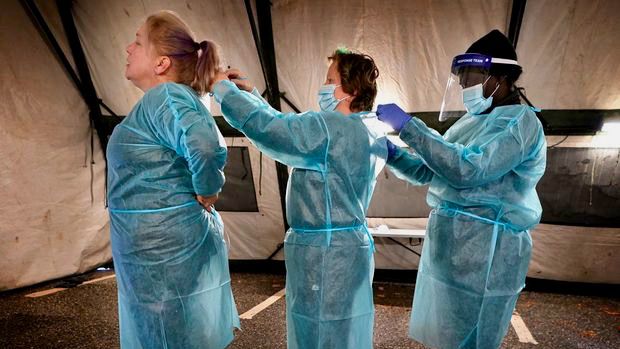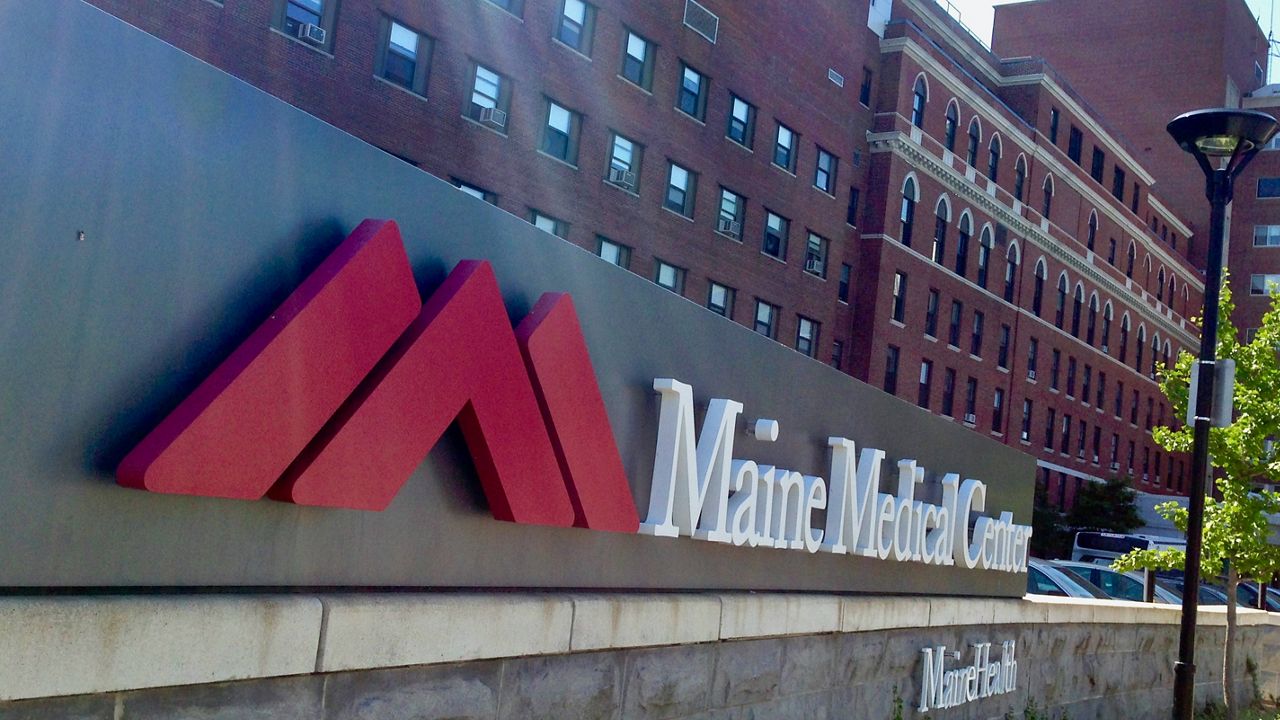Just days before people gather to give thanks with family and friends, Maine continues to deal with a fall coronavirus surge that has seen the worst case counts and hospitalizations of the pandemic.
Dr. Dora Anne Mills, chief health improvement officer at MaineHealth, wants families to understand that COVID-19 remains a real threat and that gatherings must be as safe as they are enjoyable.
“You don’t want to have a memorable Thanksgiving for the wrong reasons,” she said.
Mills has concerns about how a “crippling” surge in new COVID cases could impact a healthcare system that’s been dealing with high case counts for several months. Data from the Maine Center for Disease Control and Prevention shows the situation is indeed getting worse, not better.
Despite the growing number of vaccinated people in the Pine Tree State, Maine CDC figures show a surge in new infections and hospitalizations, all beginning at the end of August, which Mills said is largely due to the emergence of the delta variant and “tremendous vaccine resistance,” particularly in rural communities statewide.
While the U.S. Centers for Disease Control and Prevention tracks the emergence of COVID-19 in the United States back to January 2020, Maine didn’t see its first case until March 12 of that year when a woman from Androscoggin County tested positive after being screened two days earlier at Central Maine Medical Center in Lewiston.
On Friday, March 13, 2020, the state began to shut down. By the week of March 17, most Maine municipalities and school districts had entered virtual reality.
Using Maine CDC data, Spectrum News analyzed coronavirus-related statistics to understand how the disease has progressed in Maine and how the delta variant has stressed the state’s health care system over the past three months.
Despite having more than 70% of its population vaccinated, Maine is in the worst moment of the pandemic thanks to a fall surge that started in late August. After a quiet COVID summer that saw no days with over 400 new cases, Maine recorded 410 new cases on Aug. 27.
The number has gone steadily upward since, peaking on Nov. 16 with 1,042 new cases — the second highest daily case count since the pandemic began (1,044 cases were recorded on Jan. 2, 2021).
After going eight months without topping 200 people being hospitalized from the coronavirus — from Jan. 17 through Sept. 17 — the state has reported hospitalization counts above 200 for most of the fall. Maine hit another all-time high on Monday with 296 people hospitalized.
Maine’s supplementary hospital stats have also spiked this fall. Data show the number of patients needing intensive care reached 71 on Aug. 27 and hit an all-time high of 88 on Sept. 22. As of Monday, there were 87 patients in critical care around the state.
Patients needing a ventilator reached 31 on Aug. 27 and have remained consistently in the 30s and 40s this fall, peaking with 42 on Sept. 15.
While there was tremendous concern heading into Thanksgiving last year, the COVID numbers were much lighter than they are now. Maine didn’t top 300 new COVID cases at any point in September, October or November 2020, but has been consistently far above that number each day this fall.
While noting how last year’s winter surge started right after Thanksgiving, Mills said the development of a vaccine led many to think the worst of the pandemic was over earlier this year.
“The surge was here, but we had a lot of hope,” she said.
Then, Mills said, the delta variant emerged in June 2021, “and it’s just picked up ever since.”
Along with a surge in new cases, Mills said, hospitals across the state are also dealing with a growing number of people facing other health issues, including patients with behavioral health problems who are being kept temporarily in emergency rooms. These issues are made worse, she said, by an ongoing labor shortage in the healthcare field.
“Our healthcare system is overloaded, without a doubt,” she said.
Mills urged anyone planning large gatherings to do so responsibly, by doing their best to ensure that holiday guests have been vaccinated or recently taken a COVID test.
Even a fully vaccinated house of extended family, she said, ought to heed common safety advice such as wearing masks and socially distancing whenever possible. Otherwise, she said, this year’s holiday weekend could lead to a major spreading of the disease.
“I don’t think the holiday season has to be like it was in 2020, but I fear that more people are going to treat it as if it’s 2019, and that’s a real concern,” she said.







